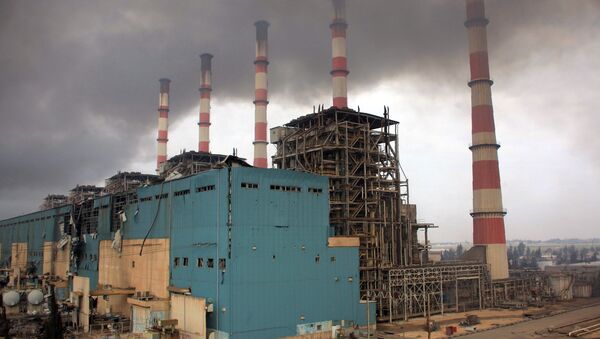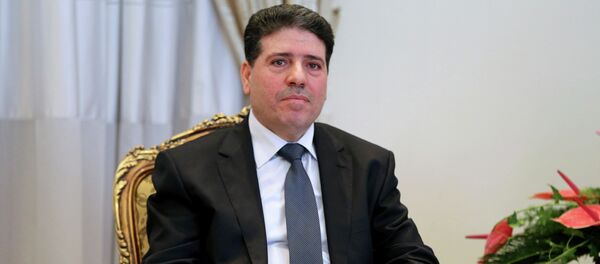"A series of sessions and meetings between technical specialists from Syria's energy sector and the representatives of Russia's Inter RAO company has been held. The Russian side has been provided with answers on some requests. Technical consultations to make a final decision on the issue of financing that would be good enough for both sides are nearly over," Halqi told RIA Novosti.
He added that such projects as Tishreen-3 proved Syrian government's faith in Syria and the intention to provide the country with infrastructure necessary for its sustainable development.
Syria and Russia have signed an agreement on renewing the country’s infrastructure for a total of 850 million euros, Wael Nader said.
“The Russia side responded to the idea of renewing the infrastructure that resulted in the signing of many deals with the Russian side, among which are agreements with a total of 600 million euros and 250 million euros,” Halqi said in an interview.
According to the prime minister, more than 60 percent of [power] stations are not operating and are in need of fuel.
“But the production of electricity relies on fuel, and the oil sector has been more exposed to terrorism than the electrical energy sector,” Halqi said, adding that 35,000 tons of oil are needed daily in order to produce electricity.
Damascus offers the Russian companies to participate in the construction and modernization of oil refineries in Syria, Prime Minister said.
The Russian companies were offered "to invest into the projects on the use of excessive refining capacity in the oil refineries in Homs and Baniyas, to become partner in the construction of…. a joint refinery [which also involves Iran and Venezuela], and take part in the modernization of the Baniyas oil refinery," Halqi said.
He recalled that Syria was interested in generally boosting cooperation with the friendly countries, particularly with Russia.
Syria has been in a state of civil war since 2011, when mass anti-government protests against President Bashar Assad and the ruling party escalated to an armed confrontation between government troops and allied militia on the one hand, and the Syrian opposition on the other.
Apart from fighting the rebels in the ongoing conflict, government forces have had to counter extremist groups as well, including the Daesh, which is outlawed in Russia and many other countries.
Russia has been supporting Assad as the legitimate Syrian authority, and is contributing to finding a political solution to the crisis in the conflict-hit country.



